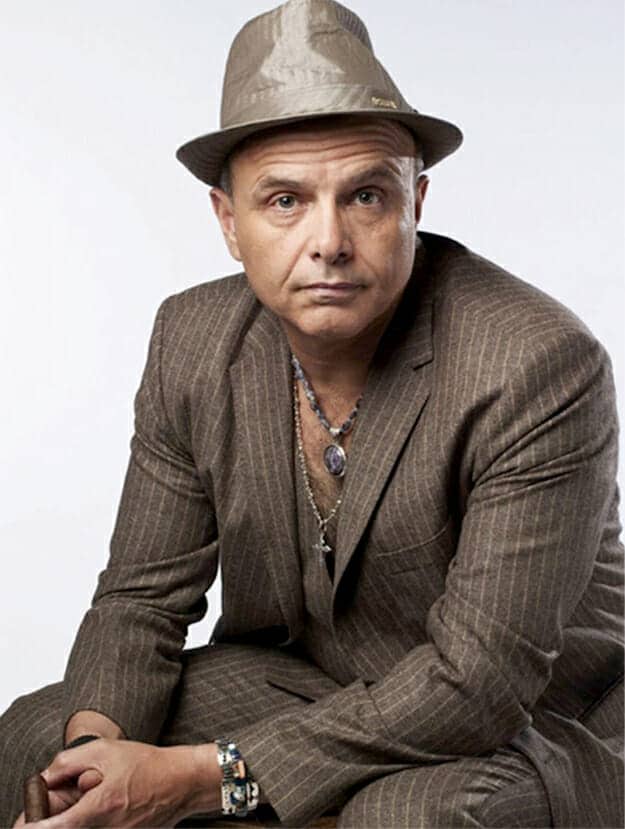Actor Joe Pantoliano, aka “Joey Pants” to friends and colleagues, vividly remembers the first time he experienced stigma around mental illness. After being diagnosed with clinical depression, Pantoliano — best known for playing the character Ralph Cifaretto on “The Sopranos” — went to work on a pilot for another show in 2006. During the obligatory health checkup to get insured for the show, the doctor asked him what medications he was taking. This was a question Pantoliano had answered over and over again during his 30-year career in the entertainment industry.
 Pantoliano said the usual: “Ten milligrams of Lipitor, and, Oh, I’m also taking an antidepressant.”
Pantoliano said the usual: “Ten milligrams of Lipitor, and, Oh, I’m also taking an antidepressant.”
Two days later, Pantoliano got a call from his lawyer saying the production company wasn’t going to insure him because he was a production risk. “You have to sign a waiver so if you have a meltdown you’ll be financially responsible for any time lost due to your behavior.” Pantoliano was astounded. He said, “Wait a second. I’m taking Lipator. I have a history of heart disease. They’ll insure my heart, but not my brain?”
That was the moment Pantoliano decided to start No Kidding, Me Too! (NKM2), a nonprofit organization composed of entertainment industry members united in an effort to break down the stigma attached to brain disease.
According to the National Institutes of Mental Health, more than one in four adults in the United States lives with some sort of mental illness. Pantoliano says mental illness, unlike the common cold, is a sickness that shames its carrier. “Why is it that mental illness is the only diagnosis in the world you can get yelled at for having?” The goal of NKM2 is to make brain disease “palatable” he says. They want the response to the statement, “I have bipolar disorder/schizophrenia/insert illness,” to be the more socially acceptable, “No kidding? Me too.”
He enlisted the help of Harrison Ford, Jamie Foxx, fellow “Sopranos” stars Edie Falco and Michael Imperioli, Dana Delany, Robert Downey Jr., and others to help NKM2 raise awareness.
In 2009 Pantoliano released “No Kidding, Me 2!,” a documentary he directed, showing discussions between him and his family on their struggle with his clinical depression, as well as stories of six other people all affected differently by mental illness, including a brain surgeon with bipolar disorder and three high school students managing bipolar disorder and clinical depression.
Pantoliano is now raising money to make a second documentary that will look at how we can educate about mental illness through entertainment. Despite the critical success of his first documentary, Pantoliano has found resistance to his message.
“People don’t want to look at this,” says Pantoliano. “People are afraid.”
Pantoliano hopes NMK2 will combat this fear. He hopes to recapture a view of brain disease commonly held by the American public many years ago. “Abraham Lincoln had [depression] terribly,” says Pantoliano. “It was called melancholia back then, and it was admired. It meant you were sensitive.”
For Pantoliano, there is more good news than bad news in the diagnosis of brain disease. Proper diagnosis and treatment leads to recovery for over 80 percent of those experiencing the effects of brain disease. And Pantoliano is in that 80th percentile. For him, brain disease is not about curling up in a shell and carrying the weight of his diagnosis alone. “Once I was diagnosed, I was ecstatic,” he says. “I was able to get everything back — like [in] a country and western album. You get your wife back, kids back, your house back,” Pantoliano chuckles. “That was happening for me in a wonderful way.”
Pantoliano hopes that NKM2 will help others be driven by hope, that they will see the possibilities in admitting their illness, embracing treatment, and experiencing whole-life transformation. “If you want to feel better, it’s not about taking a couple pills,” Pantoliano says. “You have to regulate what you put in your body. You gotta exercise. You have to work hard.”
And these things have been the key for Pantoliano in turning his life around. “In a few minutes, I’ll get in my car and meet my 19-year-old daughter at the yoga studio for an hour,” he says. “That will help. It will build up the dopamine in my brain.”
Unlike his infamous character Cypher in “The Matrix” — who betrayed his friends in order to return to a fake world, saying, “Ignorance is bliss” — Pantoliano believes the opposite: Knowledge is bliss. Especially when it comes to mental illness.
This article was first published in the Brain World Magazine’s Winter 2012 issue.








